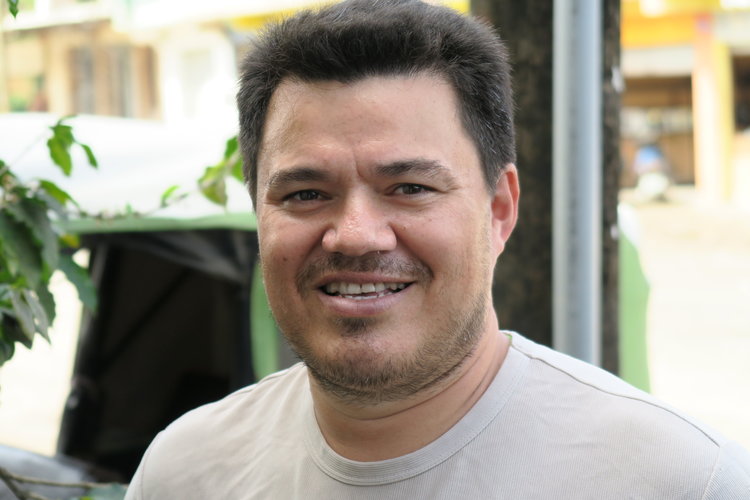We find inspiration in a lot of places. We’re continually inspired by our community, the faithful friends and guests at the shop, the community of creative folks around us in our city.
But nothing inspires us more than walking the hills of the Menendez family farms in El Salvador.

Don Miguel, the over-half-a-decade veteran of the coffee world and patriarch of the Menendez family, loves watching people taste his coffee. He watched us cup -- our co-owner Rachel, and fellow coffee sojourners Jess and Abby -- and beamed with a pride you could’ve read by. We all have our own way of understanding this, surely -- we bake someone cookies or have friends over for dinner, watch them taste the soup we’ve made. At CREMA, we get to have this experience sometimes: serving someone an espresso, and watching their face light up.
But for Don Miguel? This is different. This is a whole half-century’s worth of family, of walking his farms in the half-light of early morning, pruning coffee plants not because anyone will notice, but because he cares. As Don Miguel watches us -- his three friends and advocates from CREMA, stateside representatives of his life’s work -- taste and smile and discuss the finer points of each of the 27 coffees on his farm, he glowed with that appreciative beam that comes when you work so hard for something, only to share it with someone else.


At the Menendez farms in El Salvador, that someone else is paramount. Whether it’s someone else’s palate or someone else’s living wage, Don Miguel and the Menendez family work tirelessly to ensure that others are honored in their work.
And we certainly were honored to be there. We climbed to the top of El Rosario, Don Miguel’s strangely flat mountaintop farm equipped with “rooms of trees” (which sounds like something straight out of Middle Earth), designed to protect the coffee trees from debilitating winds.



A tour of the Menendez’s state-of-the-art mill was in order as well, and we marveled at the demucilager, a machine that allows the coffee to skip the fermentation tanks, and for the family to conserve a ton of water. For drying, the coffee rests on raised African beds, perched a few feet off a layer of volcanic rock -- the rock absorbs the sun’s rays during the day, and radiates heat at night, keeping the drying coffee from getting too cold after the sun goes down. We were fascinated by “Oliver,” their loving nickname for the farm’s density-sorting machine: an air hockey-like contraption that sorts out underdeveloped coffee beans. We watched as a team of attentive workers sat at a rotating platform, and sorted the coffee by hand. At each step of the process, the Menendez family has equipped their mill with resources to ensure their coffee remains at peak quality.
That their coffee has even survived -- not to mention improved, and continued to be hailed as one of the most prestigious farms in the country -- is amazing in itself. Over the years, El Salvador’s status as a coffee haven has dipped, as the country’s famous export has been sullied by civil war, coffee rust, and many locals abandoning the industry altogether. There are practical reasons, of course, that Don Miguel’s impressive farms have survived -- from implementing radical ways to combat rust, to performing banal tasks like pruning trees or tossing away loose branches. But the most impressive part of the Menendez’s acclaimed farms, and the reason we remain inspired -- and hydrated -- by their delicious coffees? It’s the heart, the love that spurns Don Miguel from bed each morning, the passion that makes him stop and pick a weed or gaze at a tree, a tree that produces a fruit, a fruit that becomes the coffee he loves to watch us love.









